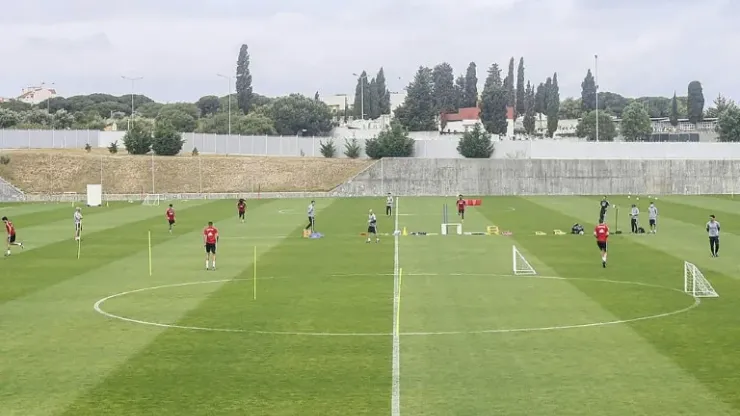Madrid (AFP) – Portuguese football is due to resume at the end of the month as the country’s relatively low number of coronavirus infections may allow Primeira Liga to make a swifter return than some of its European neighbours.
But the urgency to restart is also a reflection of the structural and financial problems confronting the game in Portugal, where even the leading clubs face uncertain futures.
After seeing just over a thousand deaths from a population of around 10 million, the Portuguese government gave the green light last Thursday for the remaining 10 rounds of the season to be played, as well as the final of the Portuguese Cup.
League leaders Porto and their closest challengers, Benfica, who trail by a point, both began training again on Monday, while respecting recommendations for physical distancing.
Yet even if the return of sport is a welcome checkpoint in the battle against the coronavirus pandemic, in Portugal it also uncovers the fragility of football clubs, who are desperate to pocket money promised by broadcasters.
Sporting Lisbon have been forced to reduce the players’ wages by 40 per cent and the club placed almost all of its employees on furlough in mid-April.
“Portuguese football simply doesn’t survive financially without football matches,” sports commentator Luis Freitas Lobo told AFP.
“If the clubs have found themselves so quickly staring over the edge of a cliff, it’s because they were in trouble even before the pandemic.”
– Future of football not secure –
“The future of football is not secure,” said the president of the Portuguese federation Fernando Gomes in a column published on Monday.
Gomes criticises clubs for a lack of planning and, for those higher up the table, depending too heavily on their participation in European competitions, despite both Benfica and Porto dropping out of the Champions League early this season.
Many have also become accustomed to relying on profits made from player sales, a source of income that is likely to dry up in the short-term at least, given the expected sluggishness of this summer’s transfer window.
In the second tier, which will not be completed, the league and federation plan to pay clubs a total of 2.5 million euros in compensation but only if they accept the decision announced on Tuesday to freeze the placings as they stand.
Other clubs may follow the lead of Cova da Piedade, who are due to be relegated and have already threatened legal action.
“This decision makes Portuguese football dirty,” said one player from Casa Pia, who are bottom, quoted anonymously by the daily newspaper Record.
There is still uncertainty regarding the top flight too, with a date yet to be announced, even if the league have circled June 6 and 7 as their ideal moment for resumption.
The medical protocol for games behind closed doors is also to be finalised while supporters, denied access to matches, are likely to be left out in the cold.
A proposal to broadcast games on free-to-air television would be popular with fans and might prevent them too from gathering in large groups, when the risk of infection would increase.
Yet even then rights holders would expect to be compensated and Portuguese football is not in a position to be generous.
200+ Channels With Sports & News
- Starting price: $33/mo. for fubo Latino Package
- Watch Premier League, Women’s World Cup, Euro 2024 & Gold Cup
The New Home of MLS
- Price: $14.99/mo. for MLS Season Pass
- Watch every MLS game including playoffs & Leagues Cup
Many Sports & ESPN Originals
- Price: $10.99/mo. (or get ESPN+, Hulu & Disney+ for $14.99/mo.)
- Features Bundesliga, LaLiga, Championship, & FA Cup
2,000+ soccer games per year
- Price: $5.99/mo
- Features Champions League, Serie A, Europa League & Brasileirāo
175 Premier League Games & PL TV
- Starting price: $5.99/mo. for Peacock Premium
- Watch 175 exclusive EPL games per season






